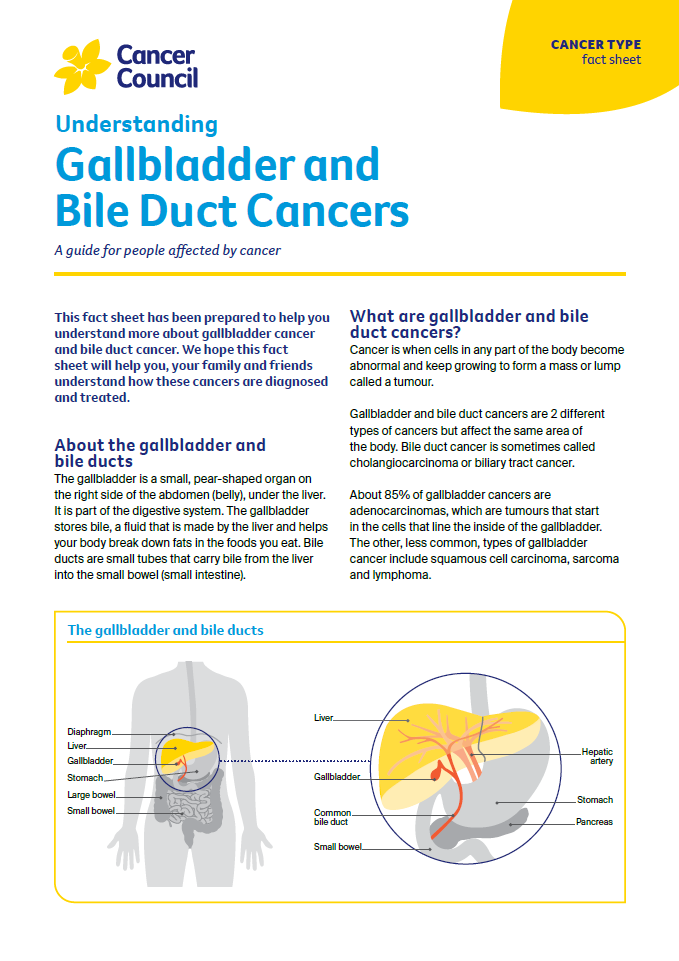- Home
- Gallbladder and bile duct cancers
- Managing side effects
Managing side effects
All treatments can have side effects. The type of side effects that you may have and how long these last will depend on the type of treatment and where in your body the cancer is.
Some people have very few side effects and others have more. Before your treatment begins, your specialist team will discuss possible side effects, both short-term and long-term (including those that may not start immediately).
Common side effects of treatment
| surgery | bleeding, damage to nearby tissue and organs (including liver failure and bile leakage), pain, infection, blood clots, weak muscles (atrophy), lymphoedema |
| radiation therapy | fatigue, nausea and vomiting, liver inflammation, bowel issues (such as diarrhoea) skin problems, loss of fertility |
| chemotherapy | fatigue, loss of appetite, nausea and vomiting, bowel issues (such as diarrhoea) hair loss, mouth sores, skin and nail problems, increased chance of infections, loss of fertility, early menopause |
| immunotherapy | fatigue, nausea, skin rash and itching, joint pain, diarrhoea, dry eyes |
| targeted therapy | fatigue, nausea, diarrhoea, constipation, sore mouth, blood pressure changes, appetite loss, bleeding and bruising, skin problems, joint aches, headache |
Chemotherapy and radiation therapy may cause infertility. If you may want to have children in the future, it is important to discuss this with your treatment team before starting treatment. See Fertility and cancer or call 13 11 20.
→ READ MORE: Life after treatment
Podcast: Managing Cancer Fatigue
Listen to more of our podcast for people affected by cancer
Dr Corina Behrenbruch, Colorectal Surgeon, St Vincent’s Hospital Fitzroy, Peter MacCallum Cancer Centre, and The University of Melbourne, VIC; Dr Prasad Cooray, Medical Oncologist and Clinical Lecturer – The University of Melbourne Department of Surgery, Austin Health, VIC; Prof Jacob George, The University of Sydney and Head, Gastroenterology and Hepatology, Westmead Hospital and Western Sydney Local Health District, NSW; Dr Andrew Oar, Radiation Oncologist, Icon Cancer Centre, Gold Coast University Hospital, QLD; Chris Rivett, 13 11 20 Consultant, Cancer Council SA; Nicole Williams, HepatoPancreatoBiliary (HPB) Nurse Consultant, Southern Adelaide Local Health Network, SA.
View the Cancer Council NSW editorial policy.
